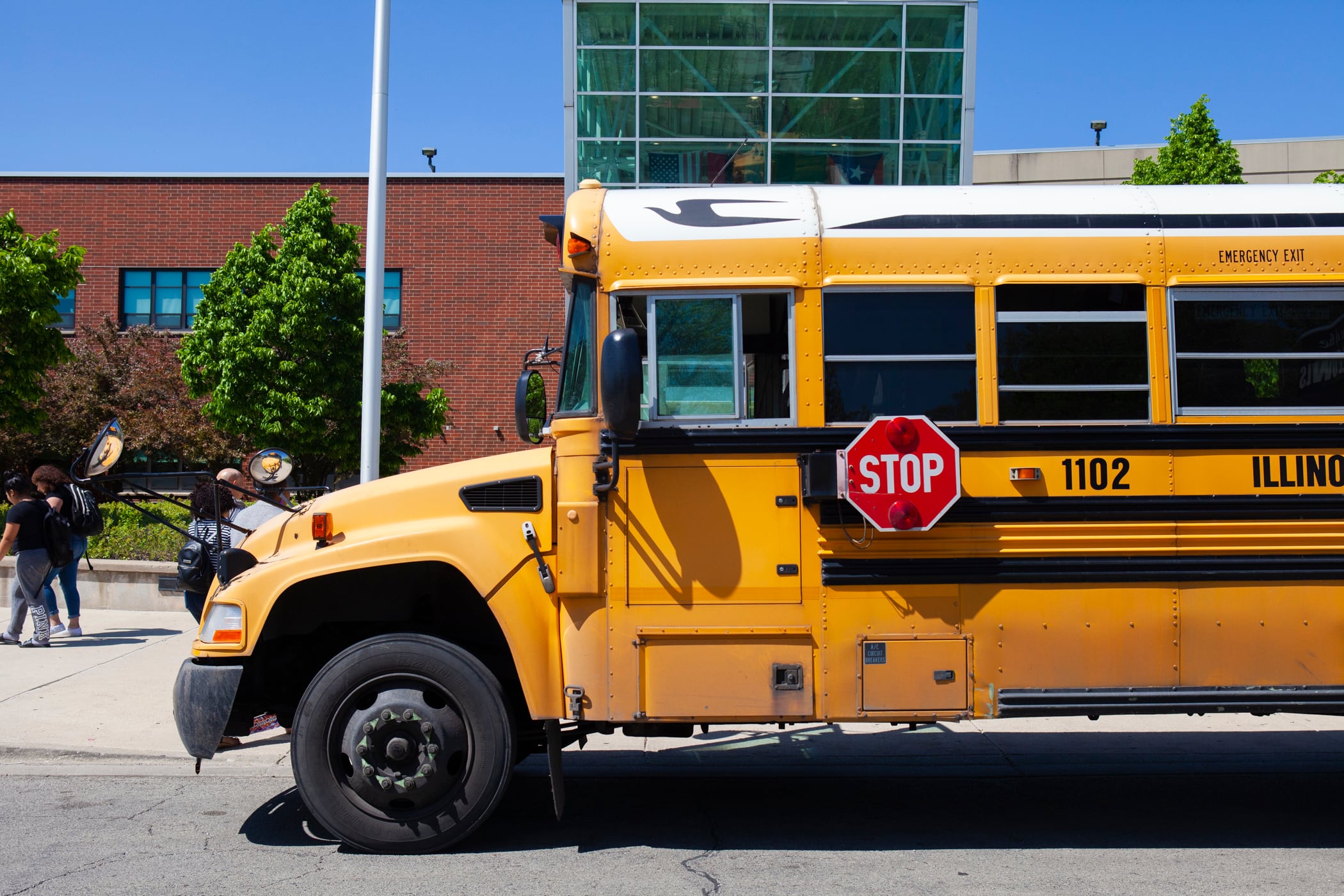After heated debate, the Chicago Board of Education extended the school police contract for another year — and passed a separate resolution urging the district to develop a police-free safety plan by the spring.
Both measures narrowly passed Wednesday after a contentious discussion and a nearly seven-hour meeting. For both votes, four members voted in favor, two voted against, and one abstained.
That means police officers will continue to patrol the 55 Chicago schools that voted to retain their officers this summer. And the contract with the Chicago Police Department remains mostly intact, but will cost $12 million this year rather than $33 million.
The Chicago school board also unanimously approved a $6.9 billion operating budget and a $758 million capital budget. The budget counts on an infusion of $343 million from the federal government, though talks on school stimulus have stalled.
The school police votes showed a stark divide between board members on the issue.
Vice president Sendhil Revuluri, who drafted the resolution calling for a safety plan, said he wanted the district to develop alternative safety measures for schools before making a wholesale plan to phase out officers.
“I don’t think making a black-and-white decision is going to get us to a better place,” he said during Wednesday’s virtual meeting.
But the most outspoken critics of the school police program said the resolution did little more than the district had already promised. They argued that the board should remove officers now.
“We should be honoring and listening to our youth, rather than serving as barriers to their data-informed demands,” board member Elizabeth Todd-Breland said. “We cannot wait more months. I see no other choice than for us to vote down the IGA [intergovernmental agreement between the school district and police] and remove police from our schools.”
The contract in place this year won’t look quite like the one last year. In response to months of public pressure to remove school police — and a rush of school-level discussions and votes by local school councils — the district recently introduced a series of reforms.
The current contract will cost less than last year’s agreement, put stricter protocols on which police officers serve on campuses, and pull out school-based computer terminals that previously connected officers with centralized criminal databases.
Youth organizers, some of whom held a rally outside Chicago district headquarters during the vote, reacted with anger and disappointment. “WE’RE TIRED OF BEING F***ING IGNORED. WERE THE ONES WHO LITERALLY HAVE TO DEAL WITH THESE COPS EVERY DAMN DAY. YALL. LITERALLY BLOOD, SWEAT, AND TEARS,” said a tweet by a group of students at neighborhood schools called Students Strike Back.
As the meeting ended Wednesday, organizers sent out messages on Twitter calling for supporters to meet them downtown to register their protest at the vote.





